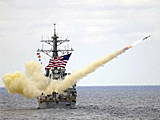Colombia-US Base Deal Rankles
By Eliot Brockner for ISN
The US concluded its final counternarcotics mission from Manta, the Forward Operating Location (FOL) for the drug war in the Andean region and Pacific, on 17 July. Between now and the expiration of the 10-year lease in September 2009, the US will begin the transition from the base in Ecuador to three bases in Colombia: at Malambo, in Atlántico Department; Palenquero, in Cudinamarca Department; and Apiay, in Meta Department.
Sensitive to the issue of sovereignty, Colombia has been assertive in dictating the terms of use. According to Colombian Interior Minister Fabio Valencia Cossio, the 800 US troops and 600 contracted civilians will be subject to Colombian law.
Additionally, Valencia Cossia emphasized that Colombia would not grant any bases or territory to the US, but rather would merely allow them use of Colombian bases.
The shift from Ecuador to Colombia marks a new direction in Washington’s role in future counternarcotics missions originating in Latin America, which have suffered a setback over the last few years. The most recent blow occurred in November 2008, when the Bolivian government expelled the Drug Enforcement Administration (DEA) from Bolivian soil. According to a report recently released by the Government Accountability Office (GOA), the US is having increasing external pagedifficulty in joint operations with Venezuelacall_made, a major transit nation for illegal drugs bound for the US and Europe.
According to the terms of the original external pageManta treatycall_made signed in June 2000, although the supreme authority of the base was a member of the Ecuadorean Air Force, the US had five leadership positions, compared to just three for Ecuador. Given the initial austerity of Colombia’s response to the US use of their bases, Washington is unlikely to enjoy such authority in Colombia.
The more immediate impact of the switch is the widening of the diplomatic chasm that exists between not only the US and the left-leaning Andean nations who are increasingly reluctant to joint operations, but also between Colombia and its immediate neighbors.
Colombia’s willingness to lend assistance by allowing the use of their bases for the continuation of anti-narcotics operations has been met with resistance by its neighbors, with whom relations are already cool. On 21 July, Venezuelan President Hugo Chavez announced that his desire to review already tense diplomatic ties with Colombia, citing a US military presence in the neighboring nation as a security threat. Days earlier, Bolivia’s Evo Morales said that Latin American nations should no longer allow the US to operate counternarcotics operations from their bases, and those that do are "traitors." And tensions between Colombia and Ecuador are already very high after the Associated Press released a video last week that supposedly shows that the Armed Revolutionary Forces of Colombia (FARC) had financial ties to Ecuador President Rafael Correa’s 2006 election campaign.
The multinational nature of the drug trade calls for international collaboration on both the supply and demand side to stem the flow of drugs and empowerment of guerrilla groups and organized crime. As Washington’s ability to operate counternarcotics missions under its own terms in the region wanes, there may be the need for more regional strategic alliances and local initiatives. That cooperation with the US still causes such polarizing feelings in the region will only be a hindrance to successful collaboration.

